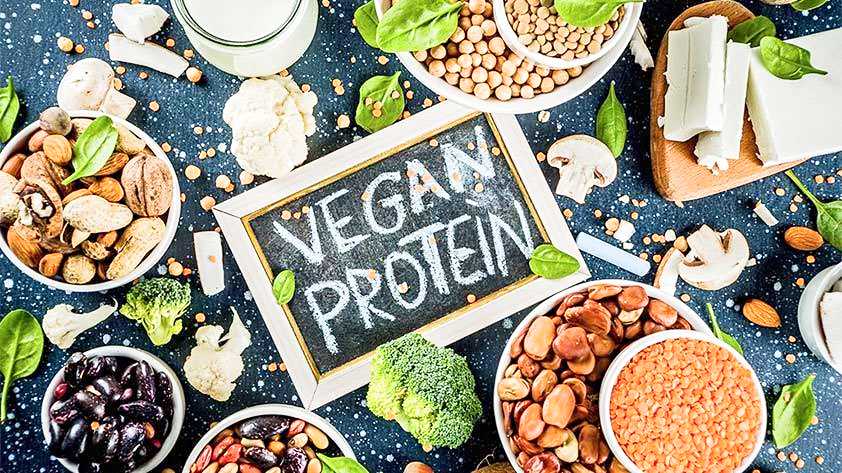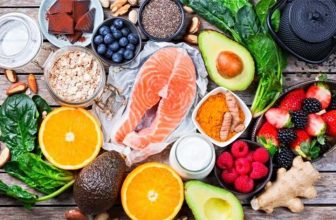
It’s a common misconception that vegan and vegetarian diets do not provide sufficient protein. Protein is an essential macronutrient which is composed of chains of amino acids. There are 21 different amino acids, nine of which are classified as ‘essential’ because they cannot be created in the body so we can only get them from our diet. Many plant protein sources are ‘incomplete’ meaning they do not contain all of the 9 essential amino acids. However, there are also many sources of plant protein that, in the right combination, can provide the full range of essential amino acids.
Want alternative protein sources along with some ways to incorporate these into your diet? Then read on for Plant-Based Protein: 5 Superb Sources to Look Out For!
1. Chia Seeds
Chia seeds are great complete plant-protein sources because they provide a good balance of all 9 essential amino acids. They are also rich in omega-3 fatty acids, fibre, and iron, making them a great addition to any diet (1). These little seeds can be sprinkled on porridge, added to smoothies, or even combined with water to make a vegan egg substitute. My favourite way to eat them is in a ‘chia pudding’ which makes a great breakfast option or healthy dessert.
2. Mycoprotein
Mycoprotein is a fungal-derived protein. If you are vegetarian, you will have most likely already tried mycoprotein because it is the main ingredient in Quorn products. It is another complete protein source and is high in fibre and low in saturated fat. Often it is mixed with egg to create a meat-like texture, so several Quorn products are not suitable for vegans, however recent advances in technology is enabling more Quorn products to be created without egg.
3. Pea Protein
Pea protein is one of the most sustainable protein sources. It provides a good balance of 8-9 essential amino acids, however it is low in the essential amino acid methionine, so you may want to consume it with other methionine rich foods such as whole grains, brazil nuts, beans, or soy.
For example, a great option would be mixing your favourite wholegrain cereal with the Mighty Peas plant-based milk. In addition, several products such as the Moving Mountains burger contain a mixture of pea and soy protein to achieve a full amino acid profile.
4. Fava Beans
Fava beans have a similar amino acid profile to peas (they are low in methionine), therefore they are great in combination with other methionine rich foods. One of the benefits of fava beans is that they can be grown locally and in colder climates, minimising their environmental impact. Roasted fava beans make for a great afternoon snack or salad topper.
5. Microalgae
Microalgae is another complete, plant-based protein source. Several species of microalgae have been shown to have a comparable protein content to animal protein sources (2).
Spirulina and chlorella are the most widely available algae products and can be bought in powder or capsule form. If you don’t mind the bright green colour, spirulina and cholera powders are a great way to add more protein to your smoothies.
So, whilst it might take a bit more planning, it is completely possible to get an adequate protein intake on a vegan or vegetarian diet. Combining any of the above protein sources is a great way to ensure you are getting sufficient protein. You should try and consume a wide variety of plant-based proteins and aim to include one in each meal. Let us know your favourite plant-based protein sources in the comments below, and join in the conversation on Facebook, Twitter & Instagram. Want more green stuff? Then check out these plant-related articles, and don’t forget to get your body moving daily to, Keep YOUR Fit ON!
Sources:
1. Knez Hrnčič M, Ivanovski M, Cör D, Knez Ž. Chia Seeds (Salvia hispanica L.): An Overview-Phytochemical Profile, Isolation Methods, and Application. Molecules (Basel, Switzerland). 2019;25(1):11.
2. Koyande AK, Chew KW, Rambabu K, Tao Y, Chu D-T, Show P-L. Microalgae: A potential alternative to health supplementation for humans. Food Science and Human Wellness. 2019;8(1):16-24.









